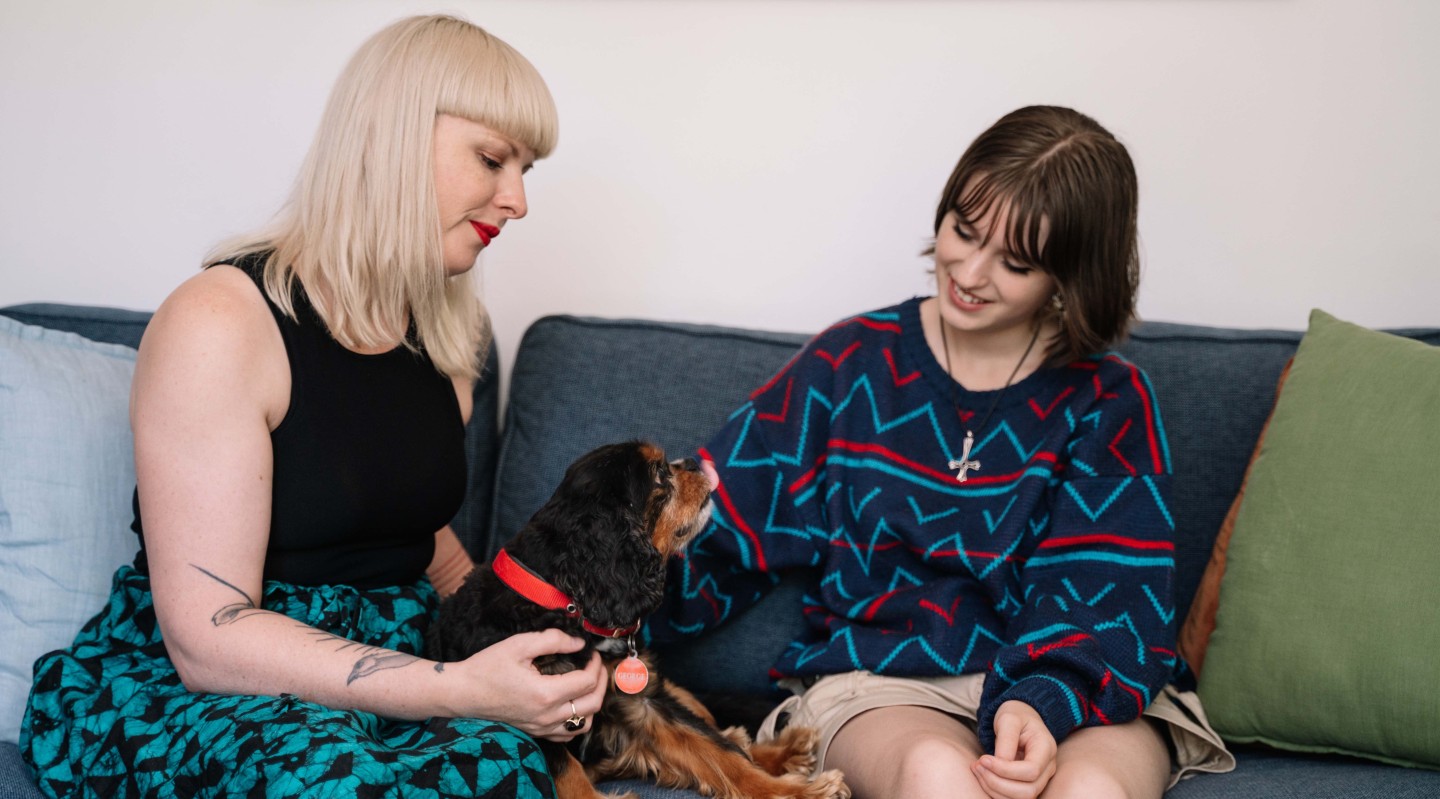The journey towards adulthood is important. It's a time full of exploration and development that equips young adults with the skills they need for life.
Young adults often face disruptions along this pathway. Sometimes, these disruptions are significant enough to impact their wellbeing and development. Major disruptions might look like:
- Serious illness
- Major accidents or injuries
- Losing a loved one unexpectedly
- Other traumatic experiences
You have a role in supporting your young adult through these events in the context of your growing adult-adult relationship. Your support can help build their capacity to manage when things throw them off course.
Disruptions, development and wellbeing
Young adulthood is about establishing an adult identity, which includes:
- becoming independent from parents
- pursuing work, study or family goals
- strengthening social and romantic connections
- developing cognitive and decision-making skills
Major disruptions can get in the way of these goals. They can limit opportunities for your young person to seek out experiences and connections that help them learn about themselves and the world. This can affect their mental health and wellbeing.
Major disruptions mean your young person might:
- feel strong emotions such as anger, grief, sadness, or frustration.
- have an increased need for support from family and friends.
- find it harder to catch up with friends or take part in things they enjoy.
- experience changes in their beliefs about the world. For example, major disruptions might challenge their belief that the world is ‘fair’ or create an awareness of their own mortality that is not usually felt until later in life.
- feel out-of-step with peers or disconnected from friends who don’t ‘get it’.
- feel ‘in limbo’, or unable to take the steps towards adulthood they have been looking forward to.
Despite these challenges, young adults are usually resourceful in the face of major disruptions – and with the right support from family and friends, often go on to find meaning in, and recover from, their experiences.
Supporting your young person when something big goes wrong
The skills needed to face major disruptions are developed throughout adulthood. Young adults are early on in this journey and may not have all the resources they need to cope with the disruption. This means your young person is likely to need more support than usual when something big goes wrong. You might:
You might say something like “I can see how difficult this is for you” or “It makes sense that you’re feeling so upset about this”
If things get really tough, you may need to ‘hold hope’ for them at times when they can’t do this themselves. You can say something like: “I can hear how hard it is for you to feel like things will improve. I genuinely believe things will get better with time.”
Staying connected to the people and things they enjoy can help protect your young person’s wellbeing. You might:
- Offer practical help or encouragement. For example, you might help your young person seek out a support group relating to their experiences or offer to give them a lift to a friend’s place.
- Check in regularly, staying open to your young person’s changing needs.
- Encourage them to check out the headspace website for tips for a healthy headspace.
Young adults are often becoming increasingly aware of their parents’ needs and wellbeing, and the financial or personal sacrifices involved in supporting them. Your young person may feel guilt and/or shame about needing or accepting help. You can help to counter this by reassuring them that:
- Everybody needs support from their family and friends
- Anyone would need support in their current circumstances, regardless of age
- That your family’s resources are also for looking after each other – and that their needs are a priority at the moment
Young adults will naturally look to what others are doing as a source of inspiration and learning. This supports healthy development in young adulthood but can also mean young adults compare themselves to others – particularly when something big goes wrong. You might:
- Remind them that everyone takes different paths, and that it’s OK if their path looks different to what you had both imagined. You might say something like “I know you never expected to be dealing with this, but I also believe you’ll get where you want to go! Your path might just look a little different to how you had imagined.”
- Remind them that, given the circumstances, it’s reasonable to be in a different position to their peers. You might say something like “I get that, it must be frustrating watching other people enjoying themselves in a share house. You’ve had a hard year – your opportunity will come!”
Major disruptions can negatively impact your young adult’s mental health and quality of life. Signs that your young person may need to seek extra support include:
- Persistent anxiety about the disruption happening again
- Strong reactions to things that remind of them of the disruption
- A persistent belief that things won’t get better
- Avoidance of activities or pastimes that they enjoy
- Low mood or anxiety that continues once the disruption has passed
Looking after yourself
While providing support during major disruptions can go a long way to helping your young adult thrive, it can still have an impact on your wellbeing. You may need to support your young adult for longer than you had planned.
It’s important to care for yourself. You might:
Practice self-compassion
Practicing self-compassion looks like being a good friend to yourself – viewing your own struggles and efforts as you would a loved one’s and treating yourself kindly.
Plan time for yourself
Your needs are important – it’s OK to take time for yourself This might look like letting your young person know you need to have a night where you enjoy each other’s company without talking about the issues at hand.
Talk to someone
It’s normal to find it difficult to cope with unexpected changes in life – talk to your GP about accessing counselling or psychology services that can give you space to talk about how you’re feeling.
Getting Support
Remember, professional support is available for both you and your young person.
Other helpful Services:
- Parent helplines are available in every Australian State and Territory of Australia. Google 'parentline' + your state or territory.
- Family Relationships Australia or 1800 050 321
- Beyond Blue or 1300 224 636
- Carer Gateway
The headspace Content Reference Group oversees and approves clinical resources made available on this website.
This content was developed in association with the Parenting Research Centre.
Last reviewed 9 May 2023
Frameworks Institute (US). Reframing adolescence and adolescent development [Internet]. US: Frameworks Institute; 2020. Available from: https://www.frameworksinstitute.org/toolkit/the-core-story-of-adolescence/
Goldsmith J. Emerging adults’ relationships with their parents. IL: Family Institute at Northwestern University; 2018. 6 p.
Hochberg Z, Konner M. Emerging adulthood, a pre-adult life-history stage. Frontiers in Endocrinology. 2020 Jan 14;10:1–12.
Kim B, White K, Patterson P. Understanding the experiences of adolescents and young adults with cancer: a meta-synthesis. European Journal of Oncology Nursing. 2016;24;2016;39–53. doi:10.1016/j.ejon.2016.06.002
Melendro M, Campos G, Rodriguez-Bravo A, Resino D A. Young people’s autonomy and psychological well-being in the transition to adulthood: a pathway analysis. Frontiers in Psychology. 2020 11;1946;1–13. doi: 10.3389/fpsyg.2020.01946
Porter N, Claridge A M. Unique grief experiences: the needs of emerging adults facing the death of a parent. Death Studies. 2021 45;3;191–201. doi: 10.1080/07481187.2019.1626939
Seiffe-Krenke I. Leaving home: antecedent, consequences and cultural patterns. In: Arnett, JJ, editor. The Oxford handbook of emerging adulthood. 1st edition. Oxford University Press; 2015. p. 177–189.
Zebrack B J. Psychological, social, and behavioural issues for young adults with cancer. Cancer. 2011 April 117;10 suppl:2289–94. doi: 10.1002/cncr.26056
Get professional support
If you feel you need help there are a range of ways we can support you.

